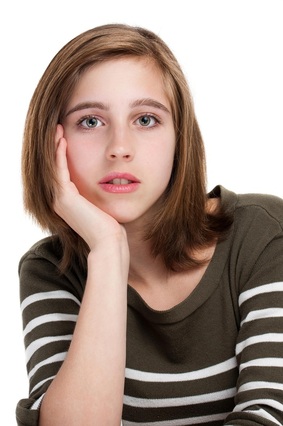 Like adults, it is common for children to have worries, doubts and superstitious beliefs. But when these beliefs become excessive and get in the way of everyday life, then there is a problem that may be diagnosed as Obsessive Compulsive Disorder (OCD). OCD is one of the most common mental health issues affecting children and adolescents, and one third to one half of adults with OCD report that it started in childhood. OCD can start any time from preschool age to adulthood (with peaks of onset during pre-adolescence and early adulthood). Fortunately very effective treatments are available that can improve well-being and reduce stress for everyone in the family. What are the symptoms of OCD? Obsessions are thoughts, images or impulses that occur over and over again and feel out of the child’s control. Children may have worries about germs, getting sick, dying, bad things happening, or doing something wrong. The thoughts are accompanied by feelings of fear, disgust, doubt, or a sensation that things have to be “just right”. It can be thought of as a bad case of ‘mental hiccups’ - a term assigned to OCD by Judith Rapoport in her book “The Boy Who Couldn’t Stop Washing”. Compulsions, also called rituals, are the behaviours that the child performs over and over again to reduce the upsetting feelings or prevent something bad from happening. Rituals might include washing and cleaning, repeating actions until they are just right, starting things over again, doing things evenly, erasing, rewriting, asking the same question over and over again, confessing or apologising, saying lucky words or numbers, checking, touching, tapping, counting, praying, ordering, and arranging. For a diagnosis of OCD these acts must be time-consuming and interfere with daily life. What causes OCD? The causes are not fully understood, however research suggests that OCD involves problems in communication between the front part of the brain and deeper structures. There is no laboratory test for OCD. Rather the diagnosis is made by an assessment of symptoms. What treatment is available? Cognitive-behavioural therapy and medication have demonstrated effectiveness for children and teens with OCD. A number of factors will be considered to plan the best treatment for your child’s specific needs. Children and adolescents with OCD often receive therapy with a psychologist and, if not rapidly responsive, medication is considered as an addition to therapy. How can I help my child? It is normal to feel at a loss when OCD appears so it is important to gain an understanding of OCD and how it operates. You will learn that OCD is not about good or bad behaviour, but instead it is a true brain illness. It is not your fault, nor is it the fault of your child. Helping your child think of their obsessions as ‘brain hiccups’ can stop them feeling as if they are to blame. With support from a psychologist you and your child can learn to respond skilfully to obsessions and compulsions so they get weaker and weaker and your child can feel in control again. Comments are closed.
|
Categories
All
|
Hopscotch & HarmonyAt Hopscotch & Harmony Psychology, you can expect compassionate care and evidence-based guidance on your journey to wellness.
With clinics in Werribee and Belmont, as well as providing online counselling to clients who live throughout Australia, our dedicated team of psychologists and dietitians are committed to providing support to children, teenagers and adults. With a focus on understanding your unique needs, we offer tailored solutions to foster growth and resilience. Trust in our experience and dedication as we work together towards your well-being. Welcome to a place where healing begins and possibilities abound. |
Our services |
Contact usHopscotch & Harmony
Child, Teen and Adult Psychology Our Locations:
WERRIBEE: 1/167-179 Shaws Rd
BELMONT: 92 Roslyn Rd AUSTRALIA-WIDE: Online counselling |
Hopscotch and Harmony respectfully recognise the Aboriginal and Torres Strait Islander people as the first Peoples of the continent now called Australia.
We acknowledge the Bunurong and Wadawurrung people of the Kulin Nation, the traditional owners of the land on which we work, and pay our respects to their Elders, past, present and emerging.
© 2024 Hopscotch and Harmony Pty Ltd

 RSS Feed
RSS Feed
